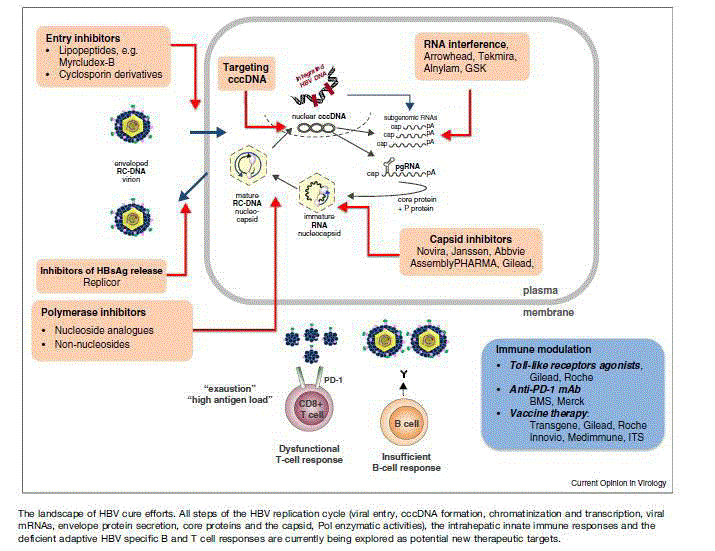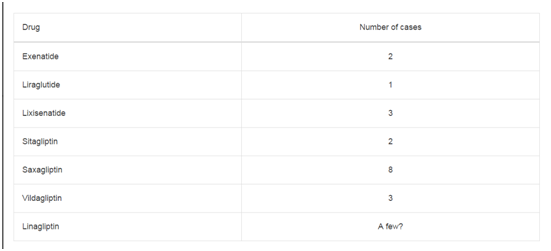Clinical Image
Persistent Risk for Hepatocellular Carcinoma in Patients on Antiviral Treatment: Desperate Need for HBV Cure
Joseph Yoo1, Grace Park1,2 and Hie-Won Hann1,2*
1Department of Medicine, Division of Gastroenterology and Hepatology, Sidney Kimmel Medical College, Thomas Jefferson University Hospital, USA
2Department of Medicine, Liver Disease Prevention Center, Sidney Kimmel Medical College, Thomas Jefferson University Hospital, USA
*Corresponding author: Hie-Won Hann, Department of Medicine, Division of Gastroenterology and Hepatology, Liver Disease prevention Center, Sidney Kimmel Medical College, Thomas Jefferson University Hospital, Philadelphia, PA, 19107, USA
Published: 13 May, 2018
Cite this article as: Yoo J, Park G, Hann H-W. Persistent
Risk for Hepatocellular Carcinoma
in Patients on Antiviral Treatment:
Desperate Need for HBV Cure. Clin
Oncol. 2018; 3: 1459.
Keywords
HBV; Antiviral drugs; HCC; HBV cure
Commentary
During the past 20 years, with the advent of highly effective antiviral drugs for Hepatitis B
Virus (HBV), we have witnessed successful viral suppression as well as the delay and prevention of
progressive liver disease leading to cirrhosis and Hepatocellular Carcinoma (HCC).
In the past, reduced incidence of HCC with antiviral treatment has been well documented with
lamivudine, entecavir and tenofovir [1-4].
Furthermore, prevention of recurrent HCC was observed by numerous investigators including
ours following initial tumor ablation when patients received combined antiviral treatment [5-10].
Nonetheless, as reported previously, we are observing a persistent risk for HCC in patients who
have maintained successful suppression of viral replication with undetectable serum HBV DNA and
normal liver function, even in patients who have been on anti-HBV therapy for greater than 18 years
[11]. The result of the observation is shown below (Table 1) [11].
In addition, among patients who are on antiviral therapy and post first tumor ablation, some of
them continue developing new HC or recurrent HCC several years (5 yr to 10 yr) after the first HCC
(personal communication). In most cases, however, continued antiviral therapy and additional
tumor ablation has been successful and patients remain well on continued antiviral treatment.
These persistent risks for new and recurrent HCC among patients with successful control of
HBV are attributed to the incomplete control of HBV, namely due to
the presence of cccDNA in the host’s hepatocytes.
While we are able to achieve a functional cure, a complete cure that
is able to eliminate the cccDNA has not yet been possible. Therefore,
even though HBV is not actively replicating, cccDNA remains in the
nucleus of the hepatocytes and continues hepatocarcinogenic process
including HBV and host DNA integration.
While we are grateful for the current management of HBV
associated HCC, there is a desperate need for the drugs that can
eradicate the virus. Due to the complexity of HBV replication, It
has not been easy, potential strategies include preventing the entry
of the virus by blocking the receptor of hepatocytes, preventing the
replication of new HBV DNA from the pregenomic RNA (successful
with currently available nucleoside/nucleotide analogues), enhancing
the host innate immunity (such as small molecule agonists of toll-like
receptors), developing a therapeutic vaccine engineered to activate
an HBV-specific T cell immune response, and directly targeting
cccDNA, in addition to other strategies.
Recent update of the development of potential HBV cure drugs
was recently illustrated by Levrero et al. [11] and Block et al. [12]. The
lucidly illustrated “the landscape of HBV cure efforts” by Levrero et
al. (Figure 1) [12].
Figure 1
Table 1
References
- Liaw YF, Sung JJ, Chow WC, Farrell G, Lee CZ, Yuen H, et al. Lamivudine for patients with chronic hepatitis B and advanced liver disease. N Engl J Med. 2004;351(15):1521–31.
- Eun JR, Lee HJ, Kim TN, Lee KS. Risk assessment for the development of hepatocellular carcinoma:to on-treatment viral response during long-term lamivudine therapy in hepatitis B virus related liver disease. J Hepatol. 2010;53(1):118–25.
- Hosaka T, Suzuki F, Kobayashi M, Seko Y, Kawamura Y, Sezaki H, et al. Long-term entecavir treatment reduces hepatocellular carcinoma incidence in patients with hepatitis B virus infection. Hepatology. 2013;58(1):98–107.
- Kim WR, Loomba R, Berg T, Aguilar Schall RE, Yee LJ, Dinh PV, et al. Impact of long-term tenofovir disoproxil fumarate on incidence of hepatocellular carcinoma in patients with chronic hepatitis B. Cancer. 2015;121(121):3631–8.
- Kubo S, Tanaka H, Takemura S, Satoshi Yamamoto, Seikan Hai, Tsuyoshi Ichikawa, et al. Effects of lamivudine on outcome after liver resection for hepatocellular carcinoma in patients with active replication of hepatitis B virus. Hepatology Research 2007;37:94–100.
- Huang G, Lau WY, Wang ZG, Pan ZY, Yuan SX, Shen F, et al. Antiviral therapy improves postoperative survival in patients with hepatocellular carcinoma: a randomized controlled trial. Annals of Surgery, 2015;261(1):56–66.
- Yin J, Li N, Han Y, Xue J, Deng Y, Shi J, et al. Effect of antiviral treatment with nucleotide/nucleoside analogs on postoperative prognosis of hepatitis B virus-related hepatocellular carcinoma: a two-stage longitudinal clinical study. J Clin Oncol. 2013;31(29):3647–55.
- Chuma M, Hige S, Kamiyama T, Takashi Meguro, Atsushi Nagasaka, Kazuaki Nakanishi, et al. The influence of hepatitis B DNA level and antiviral therapy on recurrence after initial curative treatment in patients with hepatocellular carcinoma. J Gastroenterol. 2009;44(9):991–9.
- Wu JCY, Chen YJ, Ho HJ, Hsu YC, Kuo KN, Wu MS, et al. Association between nucleoside analogues and risk of hepatitis B virus-related hepatocellular carcinoma recurrence following liver resection. JAMA. 2012;308(18):1906–14.
- Hann HW, Coben R, Brown D, Needleman L, Rosato E, Min A, et al. A long-term study of the effects of antiviral therapy on survival of patients with HBV-associated hepatocellular carcinoma (HCC) following local tumor ablation. Cancer Medicine. 2014;3(2):390–6.
- Levrero M, Testoni B, Zoulim F. HBV cure: why, how, when? Curr Opin Virol. 2016;18:135-43.
- Block TM, Alterc H, Browna N, Brownstein A, Brosgart C, Chang KM, et al. Research priorities for the discovery of a cure for chronic hepatitis B: Report of a workshop. Antiviral Research. 2018;150:93–100.


